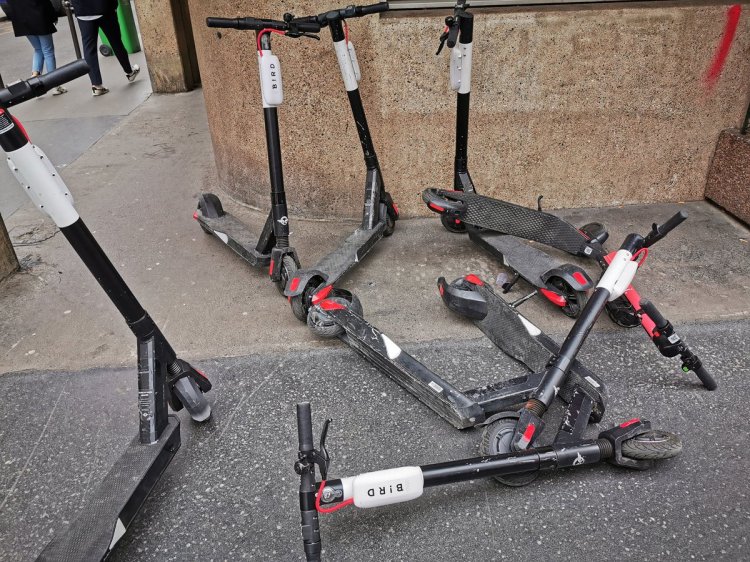If you want to see an example of how failing to properly regulate a new technology can be bad for companies, users, and communities, look no further than Paris.
Last year, the city allowed dockless electric scooters to begin operating in the city using a light-touch approach to regulation. The result of this experiment in lax regulations was what the mayor of Paris recently declared to be “anarchy.”
Residents began complaining of users zipping along sidewalks at high speeds. Many users had little experience with the devices and even less awareness of the rules on where they could and could not be ridden, so the inevitable accidents and anger began building into a backlash. And it didn’t help that inevitably, these scooters ended up in heaps on various street corners, creating a shocking image of clutter and indifference.
June 5th: The AI Audit in NYC
Join us next week in NYC to engage with top executive leaders, delving into strategies for auditing AI models to ensure fairness, optimal performance, and ethical compliance across diverse organizations. Secure your attendance for this exclusive invite-only event.
At one point, 12 scooter companies were operating in the city. And though not all of them are based in the U.S., locals tended to think of them as part of American-style Big Tech. The city was already grappling with concerns about over-tourism that many attribute to tech platforms such as Instagram and Airbnb.
In that context, the scooter chaos seemed to local residents like one more example of how Silicon Valley’s culture is willing to stampede over the concerns of others in the race to win at any cost.
In recent weeks, however, the city has decided to crack down.
At a press conference in late June, Paris Mayor Anne Hidalgo announced a series of new regulations, including:
- $40 fine for failing to park a scooter properly.
- $153 fine for riding a scooter on the sidewalk.
- Speed limit of 20 km/hr.
- Fees for companies of $56 to operate each scooter up to the first 499 and rising up to $74 for each scooter over 3,000.
Most ominous, Hidalgo vowed to whittle down the number of operators from 12 to 3 or 2. But it seems an oversaturated market and poor strategies are doing some of that work for her. According to a report in Paris-based financial newspaper Les Echos today, at least six of the 12 scooter companies have ceased operations, a situation the paper called a “massacre.”
Such consolidation was inevitable. But many of these companies were also reporting problems with vandalism and damage, likely caused by residents fed up with their ubiquitous presence.
The tragedy in all this is that a city like Paris desperately needs, and has been welcoming, new forms of mobility. As a city that sometimes has the highest pollution levels in the world, Paris has been trying to reduce the number of cars on the road with some success. Offering safe and affordable alternatives is crucial to that effort.
But the problem, as happened with ride-hailing services, comes when each operator pops up on its own. To make such transitions successful, a city needs to take a system-wide approach to optimize the introduction of new modes, reducing some traditional ones and reinventing others. Fortunately, in the U.S., there are emerging programs such as the Open Mobility Foundation, which is seeking to take this larger, long-term view of rethinking mobility citywide.
Instead of being seen as a partner in that desperately needed transition, scooter companies are now viewed with suspicion. That’s bad for the companies, bad for the city, and ultimately bad for the citizens who want to keep such big cities livable.
Silicon Valley’s culture has long taken a binary view of regulation: All government rules are bad and anti-innovation. There is rarely any recognition of the role the right rules can play in building trust and ensuring a reasonably competitive market for some services.
The consequence of this hubris has become increasingly clear across a number of markets, impacting companies like Facebook and YouTube, which are now scrambling to ask for rules that make their responsibilities clearer in order to clean up the various messes they created.
In the case of Paris’ mobility meltdown, proper regulation could have avoided this. Now we’ll see whether belated regulation can help undo the damage.


